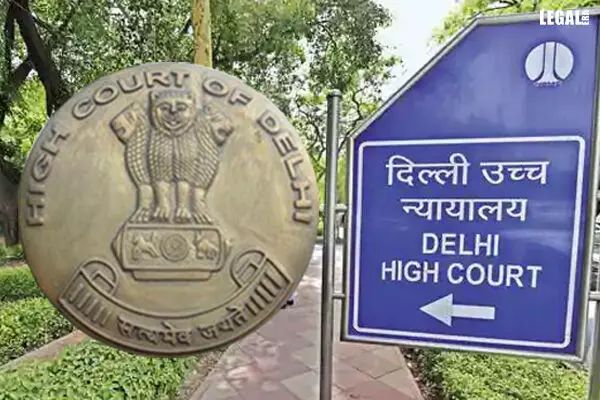- Home
- News
- Articles+
- Aerospace
- Artificial Intelligence
- Agriculture
- Alternate Dispute Resolution
- Arbitration & Mediation
- Banking and Finance
- Bankruptcy
- Book Review
- Bribery & Corruption
- Commercial Litigation
- Competition Law
- Conference Reports
- Consumer Products
- Contract
- Corporate Governance
- Corporate Law
- Covid-19
- Cryptocurrency
- Cybersecurity
- Data Protection
- Defence
- Digital Economy
- E-commerce
- Employment Law
- Energy and Natural Resources
- Entertainment and Sports Law
- Environmental Law
- Environmental, Social, and Governance
- Foreign Direct Investment
- Food and Beverage
- Gaming
- Health Care
- IBC Diaries
- In Focus
- Inclusion & Diversity
- Insurance Law
- Intellectual Property
- International Law
- IP & Tech Era
- Know the Law
- Labour Laws
- Law & Policy and Regulation
- Litigation
- Litigation Funding
- Manufacturing
- Mergers & Acquisitions
- NFTs
- Privacy
- Private Equity
- Project Finance
- Real Estate
- Risk and Compliance
- Student Corner
- Take On Board
- Tax
- Technology Media and Telecom
- Tributes
- Viewpoint
- Zoom In
- Law Firms
- In-House
- Rankings
- E-Magazine
- Legal Era TV
- Events
- Middle East
- Africa
- News
- Articles
- Aerospace
- Artificial Intelligence
- Agriculture
- Alternate Dispute Resolution
- Arbitration & Mediation
- Banking and Finance
- Bankruptcy
- Book Review
- Bribery & Corruption
- Commercial Litigation
- Competition Law
- Conference Reports
- Consumer Products
- Contract
- Corporate Governance
- Corporate Law
- Covid-19
- Cryptocurrency
- Cybersecurity
- Data Protection
- Defence
- Digital Economy
- E-commerce
- Employment Law
- Energy and Natural Resources
- Entertainment and Sports Law
- Environmental Law
- Environmental, Social, and Governance
- Foreign Direct Investment
- Food and Beverage
- Gaming
- Health Care
- IBC Diaries
- In Focus
- Inclusion & Diversity
- Insurance Law
- Intellectual Property
- International Law
- IP & Tech Era
- Know the Law
- Labour Laws
- Law & Policy and Regulation
- Litigation
- Litigation Funding
- Manufacturing
- Mergers & Acquisitions
- NFTs
- Privacy
- Private Equity
- Project Finance
- Real Estate
- Risk and Compliance
- Student Corner
- Take On Board
- Tax
- Technology Media and Telecom
- Tributes
- Viewpoint
- Zoom In
- Law Firms
- In-House
- Rankings
- E-Magazine
- Legal Era TV
- Events
- Middle East
- Africa
Delhi High Court: ITR Filing Date Relevant For Calculating Section 143(2) Limitation

Delhi High Court: ITR Filing Date Relevant For Calculating Section 143(2) Limitation
Stresses that the notice cannot be served on the assessee after the expiry of six months
The Delhi High Court has held that once the Income Tax Return (ITR) is considered valid and only a defect under Section 139(9) of the Income Tax Act, 1961 is found, interest cannot be levied on it.
The bench of Justice Rajiv Shakdher and Justice Girish Kathpalia observed that if the date of the ITR originally filed on 14 October 2016 was considered, the notices served on the petitioner-assessee were time-barred. That’s because the first proviso appended to Section 143(2) of the IT Act stipulated that the notice could not be served on the assessee-petitioner after the expiry of six months.
The assessee assailed the issue under Section 143(2) and Section 142(1) of the IT Act. It submitted that the notices were barred by limitation.
On 14 October 2016, the assessee filed its original ITR declaring a loss of Rs.3,85,73,772. On 6 February 2017, it was served with a notice under Section 139(9) stating that the ITR was defective.
Thereafter, as pointed out by the respondent, on 18 February 2017, the assessee removed the defects.
On 10 July 2017, the assessee was served with another notice. It mentioned that the ITR filed on 14 October 2016 for the Assessment Year 2016–2017 contained defects.
Thus, once again, the assessee removed the defects on 20 July 2017. The ITR was processed by the assessing officer (AO) on 22 November 2017, after which the defects were removed. An intimation was served on the petitioner under Section 143(1).
On 11 August 2018, the assessee was served with the first notice under Section 143(2) and the second notice on 31 August 2018 under Section 142(1).
The petitioner stated there was no revision of the original ITR. The notice under Section 139(5) and compliance could not be treated on par with the provisions of Section 139(9). The ITR was processed under Section 143(1). The notices were invalid and illegal and barred by limitation. Thus, via 11 October 2018 communication, the assessee reiterated the limitation expiration period.
On 24 October 2018, the assessee received a communication rejecting the assessee’s stand that the impugned notices were time-barred.
The assessee submitted that the notices were time-barred as they were issued beyond the time prescribed in the first proviso appended to Section 143(2). In the relevant Assessment Year 2016-2017, effective from 1 June 2016, the time limit provided for serving a notice was six months.
The assessee argued that the date for calculating the limitation under Section 143(2) proviso would be six months, commencing from the last date of the Financial Year in which the original ITR was filed. Thus, by 30 September 2017, the limitation expired.
The department contended that a notice under Section 143 could only have been issued after the defect was removed. Thus, the impugned notices were within the time prescribed by the statute. A defective ITR could not be regarded as an invalid return ipso facto. It may assume the character of an invalid ITR if the defect was not removed by the assessee after due notice,



